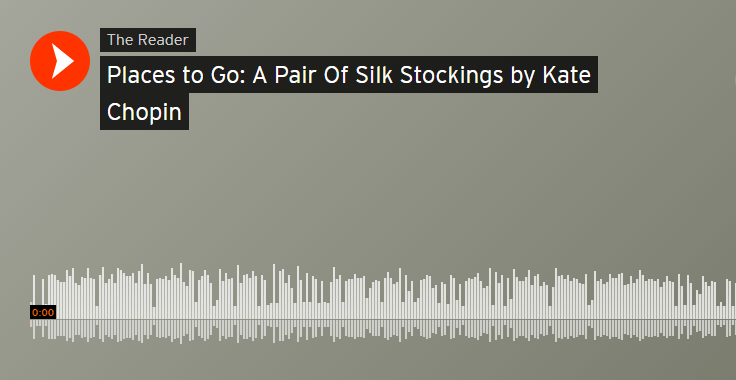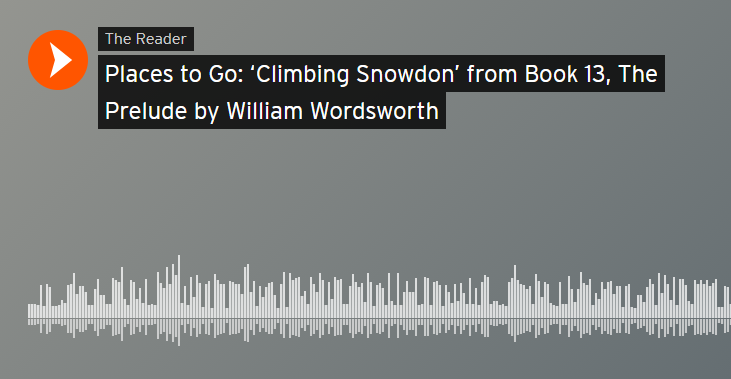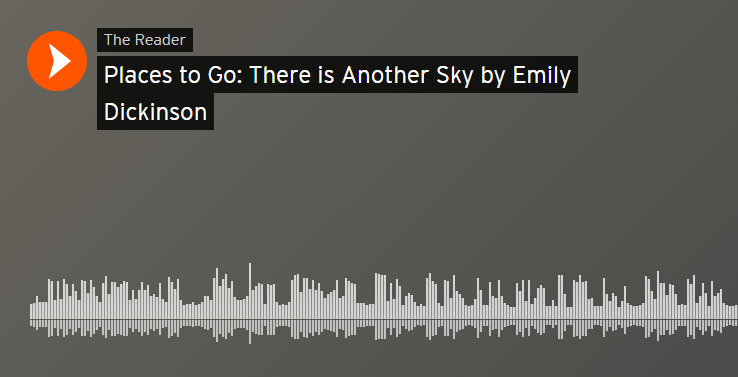Places to Go: The Door in the Wall by H. G. Wells
Places to Go is a special feature that The Reader is bringing to you in the hope that it may provide some inspiration on how we can spend our time at home during lockdown. We will be posting extracts from stories which highlight special moments of travel and adventure for you to enjoy. This week Grace Frame shares a reading of, and her thoughts on, The Door in the Wall by H. G. Wells.
I wonder if we can recall moments in our childhood when we were able to escape into another world. It sometimes saddens me that my memory of childhood things is pretty limited; there’s so much that I would like to be able to remember in more detail. But I do have quite a clear memory of sitting in our living room, listening to a recording on a cassette tape of a man reading The Magician’s Nephew by C. S. Lewis. I grew up in a busy household, but in this memory it is as if I was on my own: there is just me, the cassette player, and the image the story started to evoke in my mind, of two children and some peculiar rings.
This is probably the closest analogy I have for what Wallace recounts in this extract. I find it so striking in the full version of this story, which is about two thirds longer than the extract given here, that we don’t just accompany the child on his imaginative journey but we also see the impact of having gone on this journey on the man, an impact that endures throughout the rest of his life. He describes being haunted by a longing to be able to return to this place which he has not been find again of his own accord. And when he has, on occasion, caught a glimpse of the entrance to it again, he has been too distracted by the pressing needs of his job and occupation to be able to give in to the desire to go in.
There is only one door in H. G. Wells’ title, but Wallace says that in his life, there were effectively two: the door in the wall, and ‘the door of my career’. So often, he chose the latter almost because he didn’t feel he had any other option. But sometimes we can reach a point in our life when we feel compelled to reassess the ways we have prioritised things up until then. The story does prod me to think that there may be quite a few of us having such thoughts at the moment, at a time when many of the things we have worked and planned for have been thrown up in the air. This story mercifully gives us access to some of those memories of lost escape routes and pleasure gardens. Perhaps we can use it as a reminder that if we look it in the right way, it is possible to see that these places still exist.
Redmond tells us that it was very difficult for Wallace to describe the garden to which the door in the wall gave access. But as he introduces it to us in the sentence that then follows, he gives us a wonderful sense of the refuge that he must have found there: ‘There was something in the very air of it that exhilarated, that gave one a sense of lightness and good happening and well being’. I love the idea of that combination of all three things: ‘lightness’, ‘good happening’ and ‘well being’. It certainly seems rare, and yet I can think of summers in the park when I have caught a sense of this. The ‘good happening’ is perhaps what intrigues me the most though, in this sentence and in the passage as a whole.
And so how, we might find ourselves asking, do we get there? For little Wallace, he did something which in later life must have become much more difficult: ‘one day he wandered’. I’m not sure if this is always easy to do; a certain amount of switching off is required. But I hope that listening to this story might just help you to make a start.
Share
Related Articles

Places to Go: A Pair of Silk Stockings by Kate Chopin
Reader Leader, Julie Gaukroger, takes us on today's audio adventure with an extract from A Pair of Silk Stockings by Kate Chopin.…

Places to Go: ‘Climbing Snowdon’ from Book 13, The Prelude by William Wordsworth
Reader Leader, Sue Colbourn, takes us on today's audio adventure with an extract from The Prelude by William Wordsworth, 'Climbing…

Places to Go: There is Another Sky by Emily Dickinson
The Reader's Liverpool Hub Leader, Michelle Barrett, takes us on today's audio adventure and reads the poem 'There is Another…


